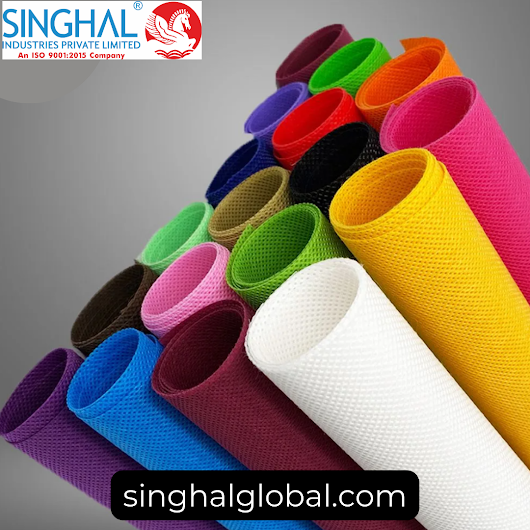Weaving Excellence: PP Non-Woven Fabric, Spun Bond Fabric, and Finding the Best Spun Bond
Embark on a journey into the world of non-woven fabrics,
focusing on the versatility of PP non-woven fabric and the qualities that make
spunbond fabric stand out. This article delves into the features, applications,
and tips for choosing the best-spun bond material Manufacturer of Flexible Packaging Products, offering valuable insights
for various industries.
Unraveling PP Non-Woven Fabric
Featherlight Strength: Features of PP Non-Woven Fabric
Explore the lightweight yet durable features that define PP non woven fabric. From its soft texture to resistance against moisture and
chemicals, this fabric serves a myriad of applications. Delve into the world of
PP non-woven fabric and understand how its unique characteristics cater to
diverse industry needs.
Applications Across Industries: Where PP Non-Woven Fabric
Excels
Dive into the applications where PP non-woven fabric proves
indispensable. From hygiene products like diapers and sanitary napkins to
medical masks and filters, discover how this fabric contributes to comfort and
functionality. Uncover the versatility that makes PP non-woven fabric a staple
in various manufacturing processes.
Spinning Wonders: Spun Bond Fabric Unveiled
Woven for Strength: Exploring the Features of Spun Bond
Fabric
Uncover the features that make Spun bond fabric a preferred
choice. Its strength, durability, and uniform texture set it apart in the realm
of non-woven fabrics. Learn how spunbond fabric offers a balance between
lightweight comfort and robust performance, making it suitable for a range of
applications.
Best Spun Bond Material: Key Considerations
Navigate the considerations when choosing the Best spun bond
material for your specific needs. From fabric weight to intended applications,
explore the factors that influence the selection of spunbond fabric. This
section provides valuable insights for industries seeking optimal performance
from their non-woven materials.
Conclusion
In conclusion, this comprehensive guide illuminates the features of PP non-woven fabric, explores the wonders of spunbond fabric, and provides insights into choosing the best-spun bond material. From everyday products to industrial applications, non-woven fabrics play a pivotal role in shaping diverse industries.
Frequently Asked Questions (FAQs)
Q: Is PP non-woven fabric environmentally friendly?
Yes, PP non-woven fabric can be environmentally friendly,
especially when it is made from recycled or sustainable materials.
Manufacturers increasingly offer eco-friendly options to align with the growing
demand for sustainable practices.
Q: What are the primary applications of spunbond fabric in
agriculture?
Spunbond fabric finds applications in agriculture as ground
covers, crop protection, and frost protection. Its breathable yet protective
nature makes it suitable for various agricultural practices, contributing to
crop health and yield.
Q: Can PP non-woven fabric be used in DIY projects?
Absolutely, PP non-woven fabric is versatile and can be used
in various do-it-yourself (DIY) projects. From crafting to home decor, its ease
of use and availability in different colors make it a popular choice for
creative endeavors.
Q: Does spunbond fabric offer flame resistance?
Spunbond fabric can be treated to enhance its flame
resistance. When selecting spunbond fabric for applications where flame
resistance is crucial, it's advisable to check with the manufacturer for
specific treatments and certifications.

.png)


Comments
Post a Comment